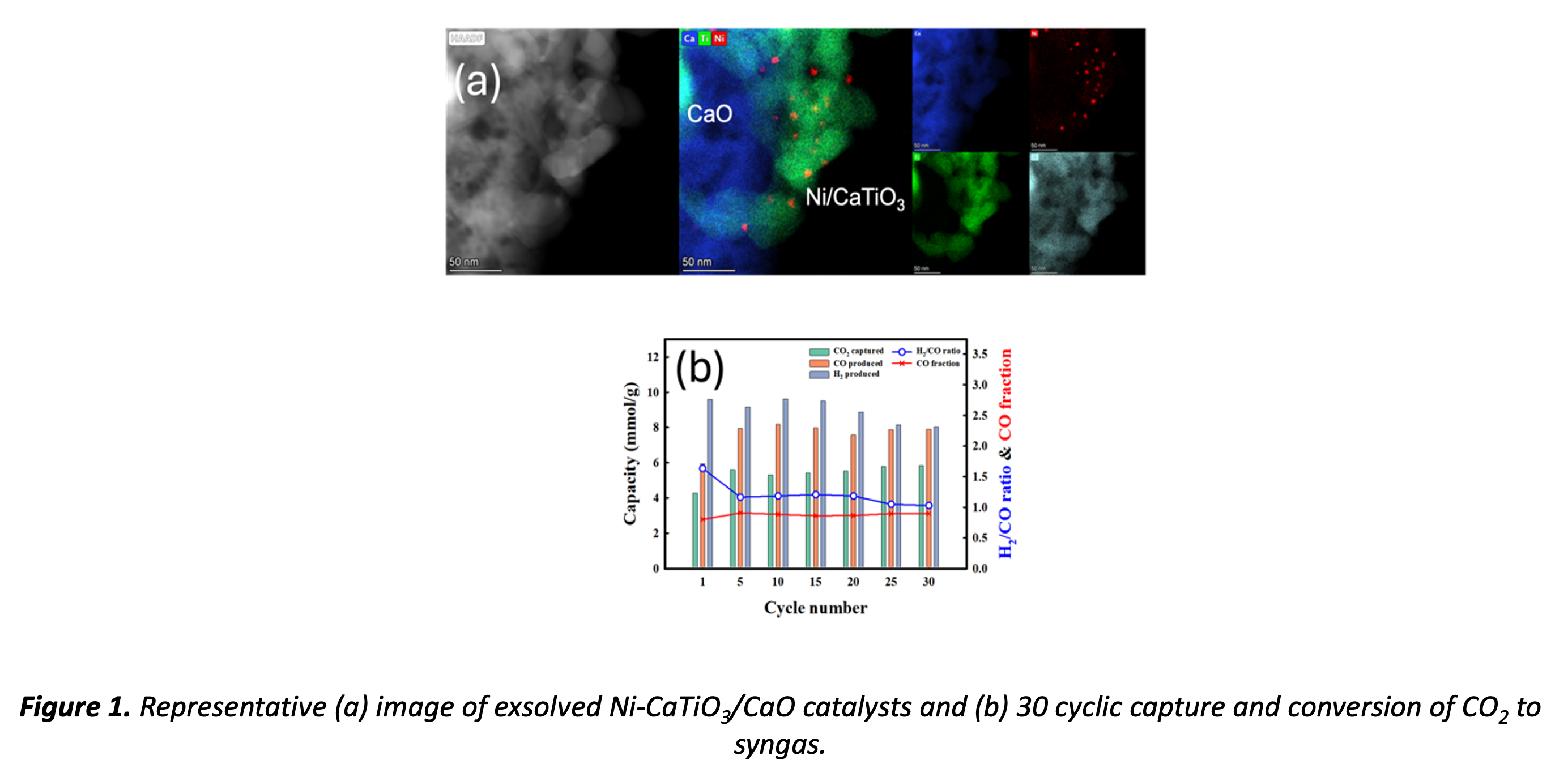Improving the thermal stability of sorption-enhanced catalysts (CO
2 sorbent + embedded heterogeneous catalyst nanoparticles)
1 is one of the most difficult and crucial parameters to control for integrated carbon capture and conversion processes. For example, sintering of the catalyst nanoparticle and CO
2 sorbent is associated with a loss of surface area and lower CO
2 capture capacity and activity. At industrial processes that operate at high temperatures, such as dry reforming of methane, the degree of deactivation of the sorbent and catalyst is particularly amplified.
This talk will introduce the use of self-regenerative Ni-doped CaTiO3/CaO nanocomposites as multifunctional materials (MFMs) for the integrated CO2 capture and subsequent dry reforming of methane (ICCDRM), where Ni-doped CaTiO3 is a catalytically active material, and CaO is a sorbent for CO2 capture. The incorporation of Ni into CaTiO3 and in-situ exsolution of Ni from CaNixTi1-xO3 double perovskite were investigated. In-situ exsolved Ni nanoparticles, which interact strongly with the host CaTiO3 perovskite, were evenly distributed throughout CaTiO3 under H2 or CH4 (reductive conditions) – Fig 1a. The exsolved Ni nanoparticles were re-dispersed back into the bulk of CaTiO3 under CO2, indicating a self-regenerative process. Ni-doped CaTiO3/CaO MFMs showed relatively stable CO2 capture capacity and syngas productivity during 30 cycles of ICCDRM – Fig 1b. Strong interaction between Ni and CaTiO3 and self-regeneration prevented Ni nanoparticles from sintering and decreased the deactivation of Ni due to both sintering and coke accumulation. Lastly, we summarize our findings to discuss rational design concepts for using MFMs for in situ carbon capture and conversion.
- Jo, L. Cruz, S. Shah, S. Wasantwisut, A. Phan and K. L. Gilliard-AbdulAziz, ACS Catalysis, 2022, 12, 7486-7510.


